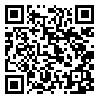BibTeX | RIS | EndNote | Medlars | ProCite | Reference Manager | RefWorks
Send citation to:
URL: http://jpcp.uswr.ac.ir/article-1-198-en.html
2- Behavioral Research Center, Baqiatallah University of Medical Sciences
3- Organization
Objective: The purpose of the present study was to compare the efficacy of metacognitive therapy with cognitive therapy on reducing test anxiety and meta-worry among students.
Methods: The present study is a quasi-experimental research with pre- and post-test design with a control group. Study population comprised all female students of Tarbiat-ModaresUniversity of Tehran and sample included 15 students who selected by available sampling method and then randomly assigned in 3 groups. Test Anxiety Inventory and the Anxious Thoughts Inventory were given to 3 groups. For analyzing the data, analysis of covariance (ANCOVA) and repeated measure method were used. Students in 3 groups were matched with regard to age and marital status.
Results: The results of co-variance test showed that there are differences between 3 groups in test anxiety. Metacognitive and cognitive therapy had same efficacy in reducing test anxiety, while the metacognitive therapy had more efficacy than cognitive therapy in reducing metaworry.
Conclusion: Considering the effectiveness of two treatments on test anxiety, results of the present study can be useful for specialists. Also, results of metacognitive therapy can be helpful in reduction of meta-worry.
Received: 2015/01/10 | Accepted: 2015/04/15 | Published: 2015/07/1
| Rights and permissions | |
 |
This work is licensed under a Creative Commons Attribution-NonCommercial 4.0 International License. |





